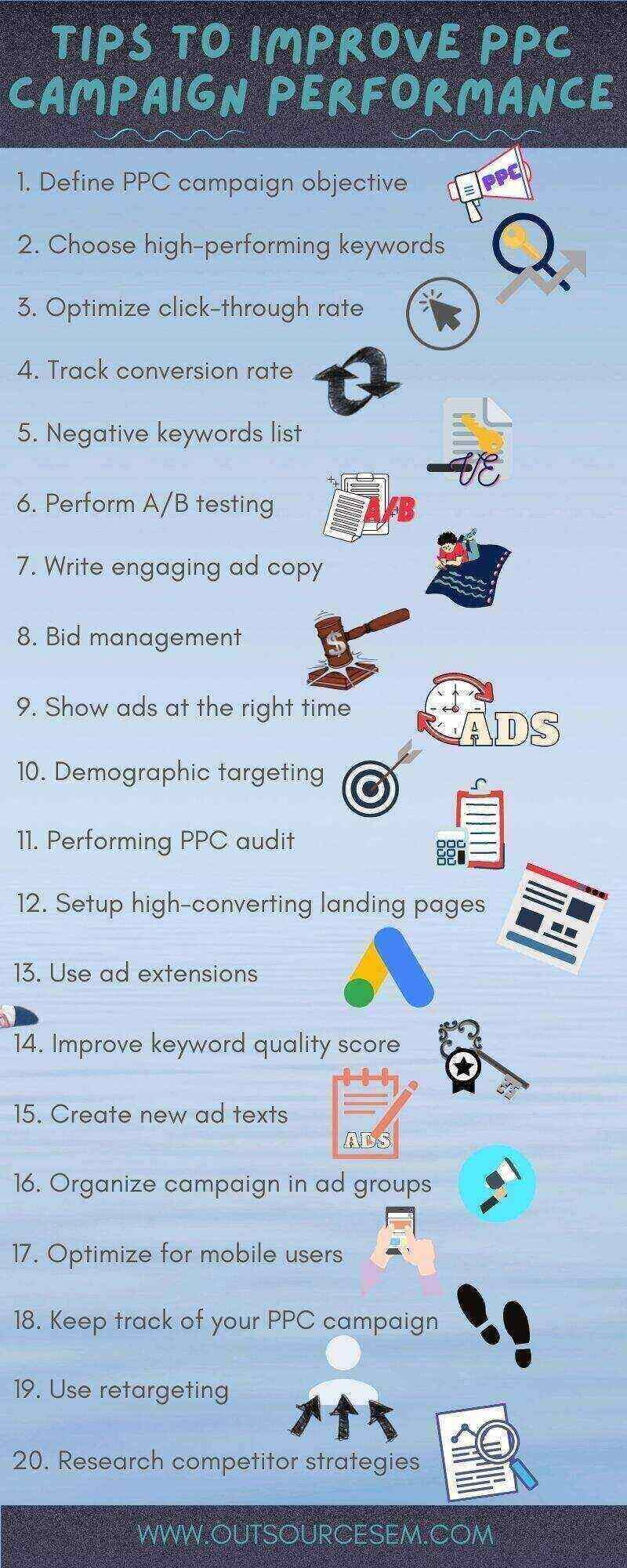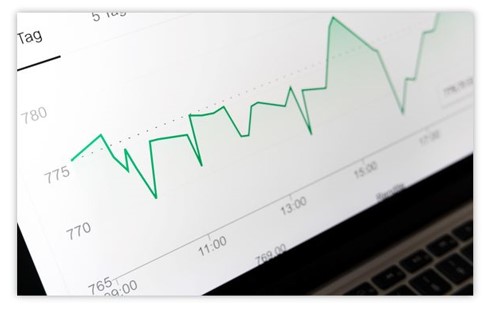In today’s digital era, internet users wish to receive knowledge, watch videos, do shopping, buy products, avail services, etc. all at a single click. Empowered by mobile devices, tablets, etc. online services are accessible 24/7 from anywhere and also presents before you the most impatient consumers who are more curious and demanding than ever before. This is where you can make use of PPC ads to showcase your product or services to the target audience so that they get what they are looking for and increase revenue for your business.
PPC advertising is an online advertising model in which you pay money every time a click is made on your ads. Pay-per-click advertising is offered primarily by search engines like Google, Bing, etc., and by social media platforms like Facebook, Twitter, YouTube, etc.
Pay-per-click advertising increases brand awareness by 80%. In search engines, the ads only appear when someone searches a keyword related to the product or service. PPC advertising provides an opportunity to advertise products or services to specific audiences who are searching for related content. You should follow a proper PPC strategy so that you get relevant clicks on your ads. While focusing on PPC strategies for your ad campaign, make sure the ad is relevant, landing pages are optimized, proper call-to-actions are in use, etc. so that the user is engaged with your ad and finally makes a purchase, thus converting. To improve your PPC ad performance, you should try to include the relevant keywords that bring in a higher number of clicks, reduces the cost per conversion, increases conversion rate, and improves ROI for your PPC campaign.
Tips to improve PPC campaign performance

1. Define PPC campaign objective– While working on plans to improve your PPC campaign performance, always keep the goal of your company in mind. Your objective is a roadmap for your campaign as it provides a clear path to how you’ll achieve success with the help of PPC advertising. You should have a clear and measurable goal for optimizing your PPC campaign. Your campaign objectives may include increasing traffic on the landing page, generating sales, etc. While setting the baseline for your campaign goals, make sure they are realistic as ambitious goals may lead to over-budget to achieve the desired results.
2. Choose high-performing keywords– PPC advertising is a part of digital marketing and choosing the right keywords is crucial to improve the performance of your ad campaign. To know which keyword is high-performing for your ad campaign depends on PPC ads goals and which KPI metrics are important to accomplish your business objectives.
You can perform keyword research that focuses on key aspects of your product, service, or brand name. Google also offers a keyword planner tool to create a keyword list based on the analysis of your business’s landing page. To improve the performance of your pay-per-click campaign you can choose keywords from this list that have high click-through rates.

3. Optimize click-through rate– The best way to improve PPC ads performance is by optimizing the click-through rate. Customers are attracted to ads which they find are offering discounts, offers, having good deals, providing coupons, etc. Highlighting these descriptions entices customers to know more about your ads and increases the chances of clicking on it.
To illustrate these descriptions you can use different types of ad extensions, that would help you increase click-through rate and ultimately generate higher revenue for your business.

4. Track conversion rate– Conversion rate is the percentage of visitors that ultimately end up buying a product or availing the services out of the total number of visitors that interact with your ads. A high conversion rate is usually indicative of successful PPC campaign marketing, a good landing page design and the visitors getting what they want.
To boost your PPC campaign performance excellent conversion tracking is required as the data from tracking would help you in optimization. This conversion tracking would give you feedback on whether a click on your ad met your desired goal such as a purchase, phone call, filling the contact form, etc. Tracking the conversion rate would help you to work on different PPC metrics and develop a PPC strategy that helps in the lead generation which finally generates revenue for your campaign.
5. Negative keywords list– Negative keywords are a type of keyword that prevents your ad from being displayed by a certain word or phrase. For e.g. If you are selling new laptops, your PPC ad might have new laptop as the keyword. But there are chances that the ad may appear to users searching for old laptops, repair laptops, second hand laptops, etc. In that case, you would include these terms in your negative keywords list, which would prevent your ads from being triggered upon search.
Negative keywords help to save ad budget for your PPC ads and display the ads for only relevant search queries. Apart from saving your ad spend, negative keywords can also improve PPC campaigns performance by reducing irrelevant click-through rate, increasing conversions, and boost the quality score.
6. Perform A/B testing- A/B testing is a process of showing two or more variants of the same page to visitors at the same time and comparing to know which variant drives more conversion for the PPC campaign. With a/b testing, you can figure out the segments working well for your ad campaign and what needs to be updated.
The elements that you can a/b test in a PPC campaign include headline, body, link, landing page, keywords, etc.
With this testing method, you may figure out that certain keyword is performing well in one area and may be performing less in other areas. This does not mean that they are less valuable but show different stages of the user’s journey. After getting the results you would know which version performs well for your ad campaign. You can then work on optimizing the PPC campaign to improve the PPC ad performance.

7. Write engaging ad copy– Ad copy is a specific type of content and designed to get the reader to take an action. Ad copy helps the users know about the product description, discounts, offers, coupons, etc. Make sure your ad copy has a clear USP and why users should choose your business over others. Ad copy has a character limit so you need to write convincing ads staying within the range. Some tips to write ad copy are:
• Create attention-grabbing headlines
• Add compelling call-to-action
• Try to be as relevant as possible
• Using eye-catching words like instant, hurry, exclusive, free, only today, etc.

8. Bid management– Bid management is very important for PPC ads, particularly if you’re new and you don’t know which bids you should be putting in and how to manage them. Google Ads has an arsenal of bidding strategies that you can choose from depending on the goals of your campaign. You should follow a proper bid management strategy to make your ads give the desired results.
In pay-per-click advertising, bidding is mostly on keywords, so try to use a smarter keyword bidding strategy that yields the maximum result with a minimum bid amount. Firstly, you need to analyze the data from the analytics report to see how many searches it takes for people to convert. You can then perform manual bidding or set up automated bidding.
9. Show ads at the right time- You first need to understand the user behavior and then plan a strategy when is the right time to display the ads. All users have different timings of browsing the internet and moment marketing is the best to reach out to every prospect at the right time. You can prepare PPC reports on when the ads should be displayed like specific timings, weekdays, weekends, etc. You can do ad scheduling in your ad campaign so that the ads get displayed at the set time only to the relevant users.

10. Demographic targeting– Demographic targeting helps you target the right audience. Advertising based on certain demographics reduces unnecessary impressions and saves ad budget by only showing ads to relevant users. Demographic targeting can be done on the basis of age, gender, income, location, etc. This helps to customize your bids, avoid wasting ad budget, and improve customer satisfaction.

11. Performing PPC audit– Regular PPC audit is essential to get top-notch results for pay-per-click campaigns. Doing a PPC audit will dive deep and present you with a report on how your ad is performing. The report would mainly include an overview of your ad campaign, an overview of ad keywords, budget allocation and spent, and analyze conversion rate.
To perform audit you can set a date range, analyze ad content, check the quality score, check the bid amount, etc. This PPC audit would help you to do regular optimizations of the landing page, increase conversions, and increase revenue for your business.
12. Setup high-converting landing pages– User experience is the most important aspect for any visitor to convert into customers. The user spends most of the time on the landing page, navigating through different sections looking for the product or services that they need. So you need to setup high converting landing pages and keep optimizing them regularly. Make sure that your landing page is also mobile-friendly. This would help you to maximize conversion rate and increase ROI for your business.
13. Use ad extensions- Ad extensions are additional pieces of information about your ads and help to boost your ad’s rank on the SERPs. There are 2 types of ad extensions manual and automatic. You can consider using any type of extension that produces the best result for your business. These ad extensions increases CTR and make your ad look more authentic. This way you can convey more information about your products or services and improve CTR. These ad extensions not only improve PPC ads performance but are also easy to use, cost-efficient and versatile.
14. Improve keyword quality score– Having too many keywords can lead you to undesirable results in lead generation. So, avoid keyword overloading and aim for a better quality score. This can help you generate traffic, improve CTR, etc. A few factors that determine quality score are:
• Click-through rate
• Landing page experience
• Relevant keywords on the ad copy
The better the quality score the higher are the chances of the ad to rank higher in SERPs, increase traffic, increase brand awareness and pay less bidding amount.

15. Create new ad texts– Superior ad texts are important to get the users to your landing page. If your ads are not compelling and relevant to your keywords, many users are not going to click on them which would result in reducing the traffic on your landing page. You should regularly be optimizing your ad text so that your ad is always in touch with the ongoing market trend. Updating the ad text would also allow you to display the new features (if any) in your headlines, ad titles, etc.
16. Organize campaign in ad groups– When you set up an ad campaign in your ads account, try creating different ad groups. In each ad group, you should have at least one keyword and one ad. You can even include multiple keywords, but make sure that they are high-performing so that your ad budget does not get wasted. Ad groups help in increasing ad relevance, increase impressions, lower cost-per-click (CPC), and increase CTR.
17. Optimize for mobile users– In today’s era, where there is a rapid increase in the use of mobile devices you cannot miss optimizing your PPC campaign for mobile users. On July 1 2019, Google launched mobile-first indexing. Now Google also uses the mobile version of the landing page for ranking and indexing purposes. Mobile-first indexing was done to make sure that you optimize your campaign also for mobile users. To have a better conversion rate for mobile devices you can outsource mobile ad services.
To make sure that the user is engaged with your ad, optimize your landing page for mobile, make easy navigation, use short-tail keywords, etc.

18. Keep track of your PPC campaign– To ensure the success of your pay-per-click advertising you need to keep track of your ad campaign. You cannot overlook the importance of constant monitoring as it will help you gain valuable insights, after which you can work on making PPC strategies to improve the performance of your PPC campaign.
If you are using Google ads you can link Google analytics to improve the efficiency of your ad campaign. You can automate Google Ads reporting to quickly find out crucial information about your ad, then create PPC strategies to enhance the performance of the PPC campaign.
19. Use retargeting– Retargeting is a way to connect with people who previously visited your ad and then left without making a purchase due to any reason. In PPC advertising, as you have to pay for every click on your ads, so you have to work on strategies to make sure that there is very a smaller number of people leaving without making a purchase. This is an ideal way to get in touch with the missed opportunities. You can use it to re-capture the prospects who are still in the awareness phase.
You can perform retargeting in plenty of ways like making offers users can’t reject, try out different lead magnets, etc. This way you can improve the performance of your PPC ads, increase conversion rate and return on investment.
20. Research competitor strategies– The best tip is to research what your competitors are doing and then make PPC strategies accordingly to get the desired results. You can use different tools to see the copy, image, and landing page of your competitors’ ads. Even better would be to find an ad that has been running for a while and delivering goals. This way you create solid business strategies to improve your ROI and be ahead of your competitors.
Closing thoughts
PPC optimization is an ongoing process and with multiple new updates happening every now and then; hence, it’s important to keep enhancing your strategies. Whether you are creating your first ever or even the tenth PPC campaign, it’s worth knowing the strategies and tips to implement that will help you optimize your ads to boost conversions and generate more sales. Using the tips discussed above you can figure out what to implement while working on PPC strategies for your campaign to yield out the desired results. If you find running paid ad campaigns a tough task to perform you can get in touch with a digital marketing company and avail white label PPC services. The PPC experts have expertise in running mobile ads, display ads, video ads, search ads, etc. and perform campaign analysis to analyze how the paid ads are performing. Getting in touch with these PPC professionals eases your work and provides you with enhanced conversion rate.
Reference
• Nine tactics to improve your PPC campaign performance in 2020
• 5 tips to improve the performance of your PPC campaigns
